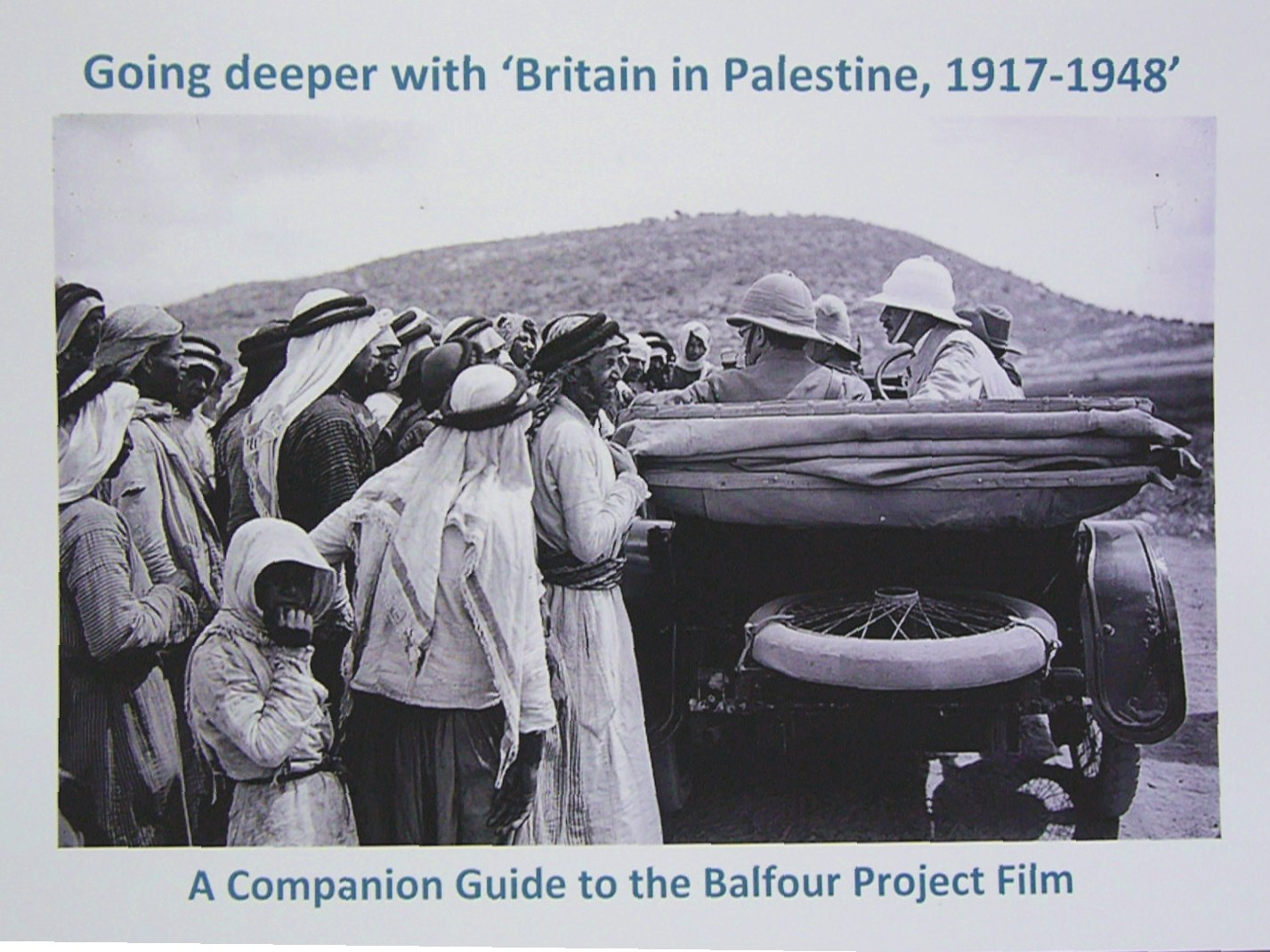The Companion Guide has been professionally written for us, and gives fascinating background to the history introduced in the film. To give you an idea of what is in it see the section on the Balfour Declaration.
It has 83 fully-referenced pages together with a detailed list of primary and secondary sources. The Companion Guide offers anyone who wants to go deeper into this history an accessible and objective starting point.
The cost of the Guide is £10 plus £3 P&P in the UK and £8.0 international. If you want several copies we offer 10 copies for £90 and free postage in the UK.
Margaret Simms :
A friend of mine has just read the companion to the film and was very impressed(he commented on the excellence of the writing) Is it possible for him to buy a copy, as he would like to send it to his son in England?
Ann Thanisch:
This 83 page booklet is a great account of Britain’s role in Palestine’s history in the period covered by the film ‘Britain in Palestine, 1917-1948’.
The booklet provides a great deal of information about what, in purely objective terms, is a fascinating sequence of events, not only in the text itself, but in the copious source material in the footnotes and bibliography.
To expand on these observations:
A few examples of more surprising facts
- The variety of different types of Zionism, and reasons for and against it, before Israel was formed.
- The general lack of support for Zionism – especially among Jews – at the time when the British government first supported it, and the narrow margin by which the Balfour declaration was approved
- The Bolsheviks being responsible for revealing British duplicity to the Arabs
- The Arabs’ apparent lack of appreciation of the White Paper of 1939 which gave them so much more than they have today (though presumably the Jewish opposition was sufficient to doom it in any case)
Reasons for shame – all reacting to circumstances
- Britain did quite deliberately get involved in the region in the late 19th century for its own strategic benefit (later shameful actions – eg the contradictory promises – were simply the inevitable result)
- The ambiguous wording of the Balfour declaration. “Nothing shall be done that may prejudice the civil and religious rights of non-Jewish…” Suggests only pro-active expulsion is forbidden; allowing circumstances to develop in which Arabs would want to leave is not explicitly excluded. And political rights not being mentioned. Was all this deliberate?
- The idea that the British would allow land sales to Jews and Jewish immigration until the Jews became a majority, and only then when it was of little value, would the Arabs be given political representation.
- Ignoring the express wishes of the locals in the King/Crane commission
- Treatment of Jewish immigrants after the Second World war
Lost opportunities
- Giving the Americans the mandate in 1919
- Implementing the White paper in 1939
One could therefore conclude that both learning about the past and keeping up to date with the current situation are necessary; increased knowledge of the one will hopefully then inform the other, with the historical approach helping one to keep in mind the basic causes of the problem, without being confused by more recent actions that are essentially reactions to each other.
Altogether, the vivid narrative and breadth of the treatment in this booklet inspire so much reading that can relate back to the subject in some way (eg George Eliot’s Daniel Deronda; biographies of Lawrence of Arabia & Gertrude Bell; Montefiore’s History of Jerusalem; Abulafia’s The Great Sea; Churchill’s memoirs….) as well as emphasising the need for campaigning and lobbying to keep the issue alive among our current politicians.

